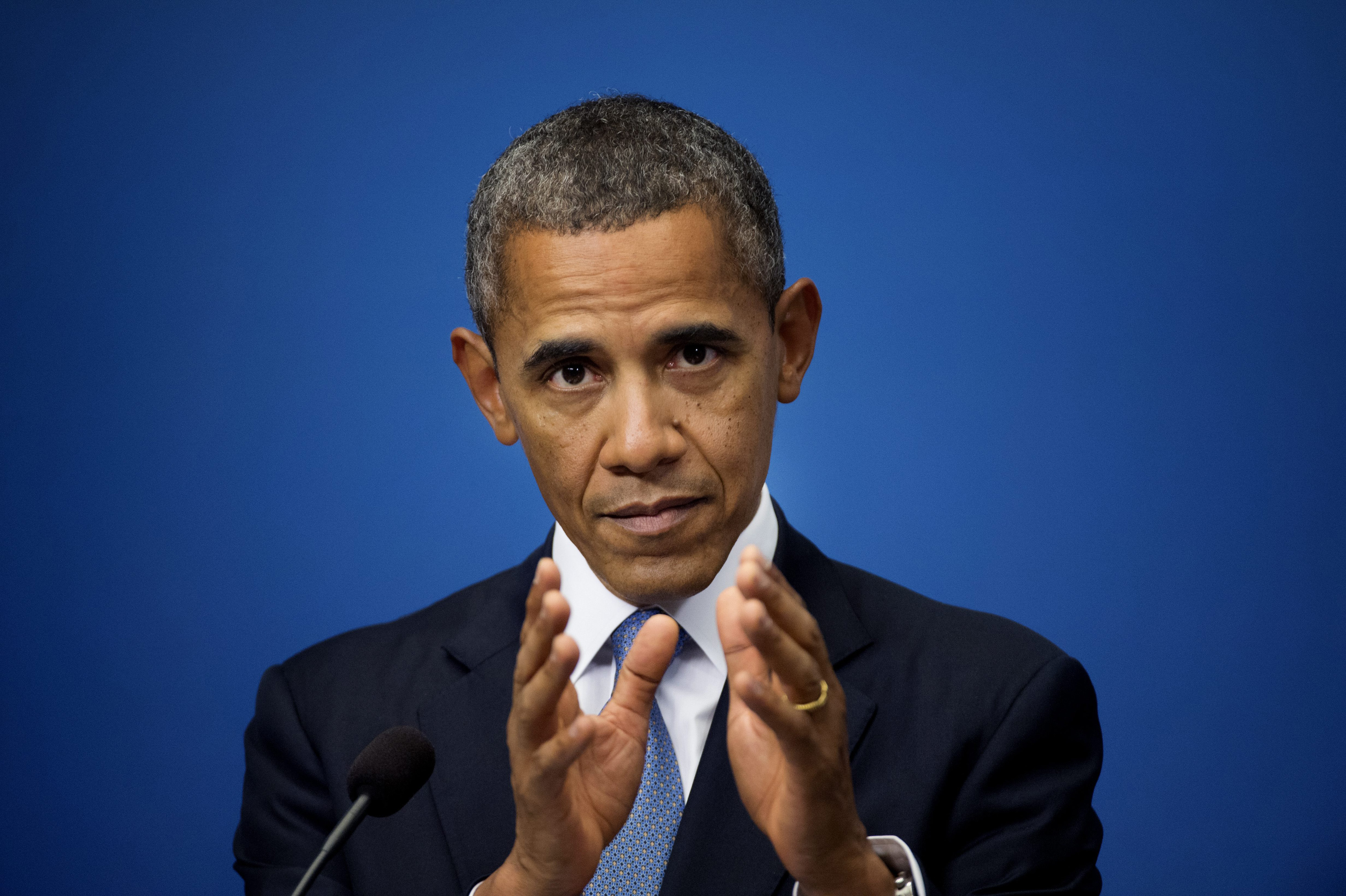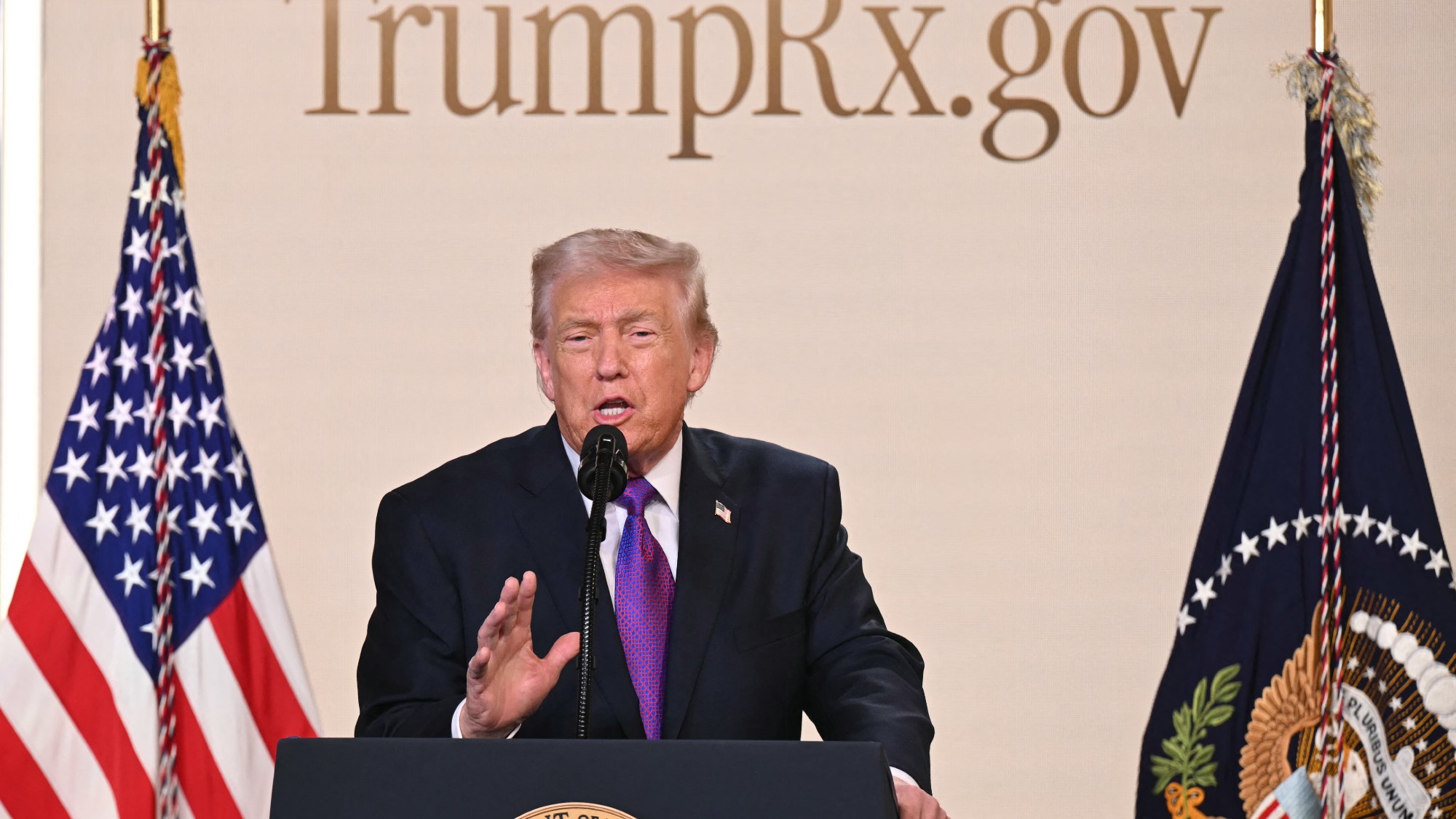How Obama abandoned his 'don't do stupid sh-t' mantra
Don't put U.S. troops in Syria, Obama. It's a trap!


A free daily email with the biggest news stories of the day – and the best features from TheWeek.com
You are now subscribed
Your newsletter sign-up was successful
In the war against ISIS, President Obama is breaking what he claims as his cardinal rule of foreign policy: "Don't do stupid sh-t."
You can see it most clearly in America's drip-drip-drip pooling of forces and resources in Syria, where despite the president's many, many promises not to put American boots on Syrian soil, we are indeed putting hundreds of U.S. boots on the ground. What makes this so stupid is that there is simply no way this intervention — better left to regional powers directly affected by Syria's fate — will turn out to be a win for the United States.
Now, it would be easy to argue in the wake of an ISIS-claimed attack in Orlando, the worst mass shooting in U.S. history, that America must, in a too-familiar move, fight them over there so we don't have to fight them over here. The Wall Street Journal editorial board wrote exactly that in a piece published Monday, insisting the "only real solution" is large-scale war "to destroy Islamic State in its havens abroad so young Muslims around the world won't see it as the vanguard of the future."
The Week
Escape your echo chamber. Get the facts behind the news, plus analysis from multiple perspectives.

Sign up for The Week's Free Newsletters
From our morning news briefing to a weekly Good News Newsletter, get the best of The Week delivered directly to your inbox.
From our morning news briefing to a weekly Good News Newsletter, get the best of The Week delivered directly to your inbox.
But ISIS actually had very little to do with this attack, beyond issuing some general instructions that the U.S.-born gunman, who apparently had no actual contact with ISIS, followed from afar. And even if the Orlando nightclub shooting was a masterplan hatched by ISIS terrorists in Syria (it wasn't), there would be almost nothing for the U.S. to gain by sending troops there.
After all, there are three ways expanded intervention in Syria might go. None of them are good for America.
First, we might end up helping a dictator stay in power. Where Obama once insisted that "Assad must go," in recent months he has backed off that ultimatum, perhaps in recognition that efforts to oust Assad may prove a distraction from efforts to defeat Syria's other problem, ISIS.
In this, Obama would not be entirely off the mark, as appalling as the Assad regime has been. After all, Obama's pet war to oust Libyan strongman Moammar Gadhafi created a power vacuum into which ISIS has surged. And in Syria, American-backed forces are fighting each other as our anti-Assad and anti-ISIS proxies clash. With context like this, it's not unthinkable that America's presence in Syria could end up prolonging Assad's brutality in service of squashing ISIS.
A free daily email with the biggest news stories of the day – and the best features from TheWeek.com
Conversely, the second possible outcome is U.S. intervention does take out Assad, but loses Syria to ISIS in the process. The allegiances of the rebels we support have always been dubious (the Pentagon and CIA are actively bickering over how radical is too radical) while the prime American role in Syria so far has been to pump obscene amounts of money and weaponry into an already volatile situation. And again, an Assad-less Syria might just be the power vacuum ISIS needs for a new territory grab.
But third, suppose Obama's intervention defeats Assad and ISIS. What then? Well, then America has a nation-building project of enormous scale on its hands.
Syria has about two-thirds the population of Iraq — around 22 million before the fighting started — but some 470,000 have been killed, 6.6 million are internally displaced, and more than 4.5 million have fled for safety abroad. Satellite imagery of night-time electricity use in the country shows it has dropped by a shocking 80 percent since 2011. In short, years of fighting have left Syria in unthinkable ruins. Normalcy and prosperity are very, very far away.
If and when Syria does finally achieve peace, I have no doubt that Americans will gladly and generously give to help Syrians get back on their feet. But that is a very different prospect from allowing a lame-duck president to pledge America's precious resources to what will even in a best-case scenario be a long, expensive, dangerous, messy military campaign which is of dubious connection to our direct national security interests — followed by a long, expensive, dangerous, messy nation-building project which is likewise of dubious connection to the direct interests of the United States. After Iraq, is that really a project America wants or can afford to shoulder? The more we meddle, the more the moral and financial risk and responsibility will become ours.
So far, there are only about 300 American troops in Syria. If that's true (and it might not be, as the administration does not have a history of honesty on this topic) it's not too late to stop a large-scale intervention before it really begins. President Obama should take this opportunity to keep the promise he has long made, and more importantly, follow his rule of not doing stupid sh-t.
Bonnie Kristian was a deputy editor and acting editor-in-chief of TheWeek.com. She is a columnist at Christianity Today and author of Untrustworthy: The Knowledge Crisis Breaking Our Brains, Polluting Our Politics, and Corrupting Christian Community (forthcoming 2022) and A Flexible Faith: Rethinking What It Means to Follow Jesus Today (2018). Her writing has also appeared at Time Magazine, CNN, USA Today, Newsweek, the Los Angeles Times, and The American Conservative, among other outlets.
-
 What’s TrumpRx and who is it for?
What’s TrumpRx and who is it for?The Explainer The new drug-pricing site is designed to help uninsured Americans
-
 ‘If you’re confused, you’re not the only one’
‘If you’re confused, you’re not the only one’Instant Opinion Opinion, comment and editorials of the day
-
 Is AI really enabling productivity gains?
Is AI really enabling productivity gains?Today’s Big Question A new survey of executives suggests not
-
 The billionaires’ wealth tax: a catastrophe for California?
The billionaires’ wealth tax: a catastrophe for California?Talking Point Peter Thiel and Larry Page preparing to change state residency
-
 Bari Weiss’ ‘60 Minutes’ scandal is about more than one report
Bari Weiss’ ‘60 Minutes’ scandal is about more than one reportIN THE SPOTLIGHT By blocking an approved segment on a controversial prison holding US deportees in El Salvador, the editor-in-chief of CBS News has become the main story
-
 Has Zohran Mamdani shown the Democrats how to win again?
Has Zohran Mamdani shown the Democrats how to win again?Today’s Big Question New York City mayoral election touted as victory for left-wing populists but moderate centrist wins elsewhere present more complex path for Democratic Party
-
 Millions turn out for anti-Trump ‘No Kings’ rallies
Millions turn out for anti-Trump ‘No Kings’ ralliesSpeed Read An estimated 7 million people participated, 2 million more than at the first ‘No Kings’ protest in June
-
 Ghislaine Maxwell: angling for a Trump pardon
Ghislaine Maxwell: angling for a Trump pardonTalking Point Convicted sex trafficker's testimony could shed new light on president's links to Jeffrey Epstein
-
 The last words and final moments of 40 presidents
The last words and final moments of 40 presidentsThe Explainer Some are eloquent quotes worthy of the holders of the highest office in the nation, and others... aren't
-
 The JFK files: the truth at last?
The JFK files: the truth at last?In The Spotlight More than 64,000 previously classified documents relating the 1963 assassination of John F. Kennedy have been released by the Trump administration
-
 'Seriously, not literally': how should the world take Donald Trump?
'Seriously, not literally': how should the world take Donald Trump?Today's big question White House rhetoric and reality look likely to become increasingly blurred
